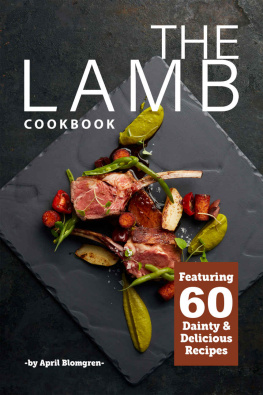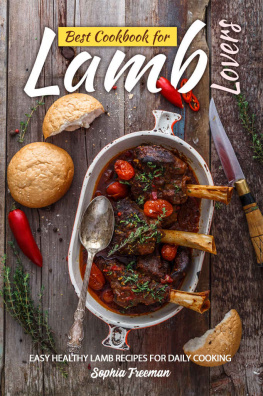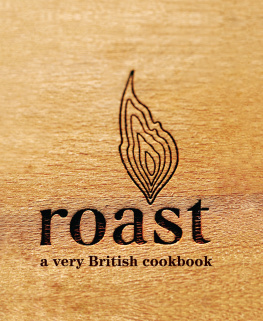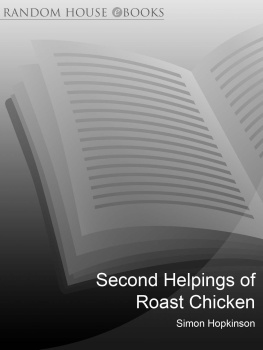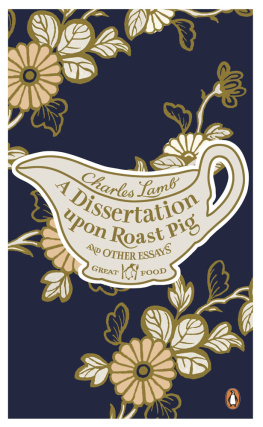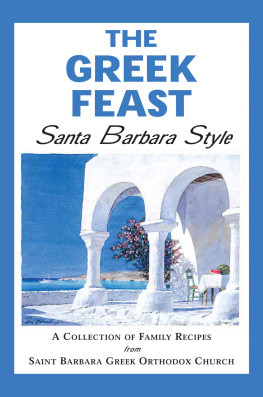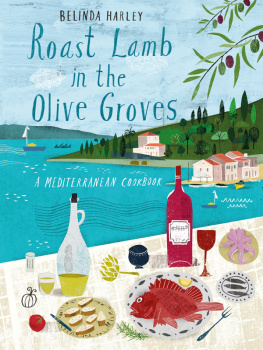Michael Psilakis - How to Roast a Lamb: New Greek Classic Cooking
Here you can read online Michael Psilakis - How to Roast a Lamb: New Greek Classic Cooking full text of the book (entire story) in english for free. Download pdf and epub, get meaning, cover and reviews about this ebook. year: 2009, publisher: Little, Brown and Company, genre: Home and family. Description of the work, (preface) as well as reviews are available. Best literature library LitArk.com created for fans of good reading and offers a wide selection of genres:
Romance novel
Science fiction
Adventure
Detective
Science
History
Home and family
Prose
Art
Politics
Computer
Non-fiction
Religion
Business
Children
Humor
Choose a favorite category and find really read worthwhile books. Enjoy immersion in the world of imagination, feel the emotions of the characters or learn something new for yourself, make an fascinating discovery.

- Book:How to Roast a Lamb: New Greek Classic Cooking
- Author:
- Publisher:Little, Brown and Company
- Genre:
- Year:2009
- Rating:4 / 5
- Favourites:Add to favourites
- Your mark:
- 80
- 1
- 2
- 3
- 4
- 5
How to Roast a Lamb: New Greek Classic Cooking: summary, description and annotation
We offer to read an annotation, description, summary or preface (depends on what the author of the book "How to Roast a Lamb: New Greek Classic Cooking" wrote himself). If you haven't found the necessary information about the book — write in the comments, we will try to find it.
How to Roast a Lamb: New Greek Classic Cooking — read online for free the complete book (whole text) full work
Below is the text of the book, divided by pages. System saving the place of the last page read, allows you to conveniently read the book "How to Roast a Lamb: New Greek Classic Cooking" online for free, without having to search again every time where you left off. Put a bookmark, and you can go to the page where you finished reading at any time.
Font size:
Interval:
Bookmark:
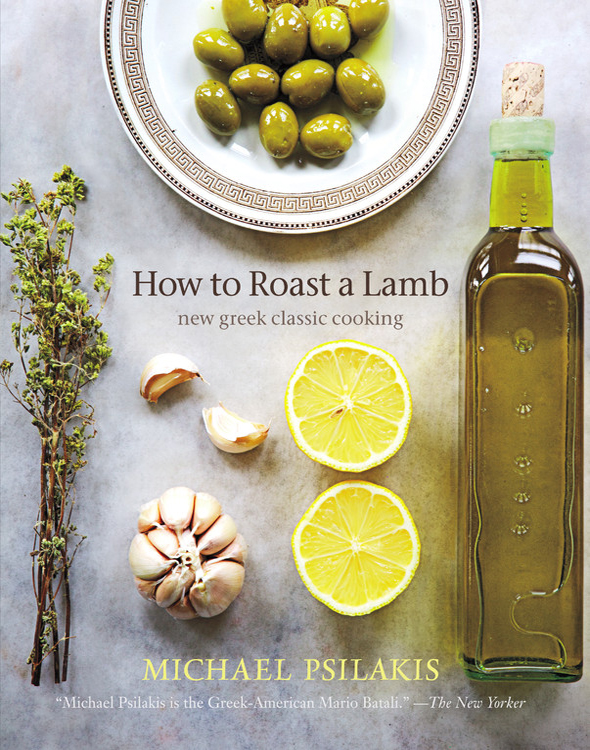
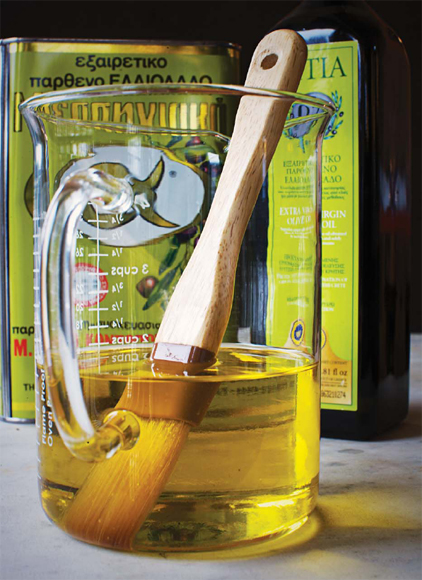
Copyright 2009 by Michael Psilakis
Photographs copyright 2009 Christopher Hirsheimer
All rights reserved. Except as permitted under the U.S. Copyright Act of 1976, no part of this publication may be reproduced, distributed, or transmitted in any form or by any means, or stored in a database or retrieval system, without the prior written permission of the publisher.
Little, Brown and Company
Hachette Book Group
237 Park Avenue
New York, NY 10017
Visit our website at www.HachetteBookGroup.com.
www.twitter.com/littlebrown
First eBook Edition: October 2009
Little, Brown and Company is a division of Hachette Book Group, Inc.
The Little, Brown name and logo are trademarks of Hachette Book Group, Inc.
ISBN: 978-0-316-07173-4
FOR MY FATHER
In my mind, you are still here, with me, our daily conversations helping, guiding,
and illuminating right from wrong, as they do in the stories that follow.
You are my hero.

FOR MY MOTHER
Know that a lifetime of meals spawned from your love has become the foundation
of who I am today as a chef and a person.

FOR ANNA & GABRIEL
Forgive me for unknowingly asking you to sacrifice to help me realize my dreams.
Forgive me for the hours you spent waiting for me to return. Forgive me for allowing
food to become my addiction. Forgive me for trying to be the man you both
deserve and for not fully appreciating the suffering this has sometimes caused.
Forgive me for being me.
But know this: without you both I would be nothing.
Know that you are truly the center of my world.
I love you.
Barbara Kafka
I t is a rare experience to find a brilliant new chef. Usually, they do not remain a secret. Instead, they become famous. I had this experience a few years ago when a friend told me that I must try a new restaurant, Kefi. I did, and the friend was correct. Michael Psilakis, whose book you have in front of you, was the chef, and he had all the attributes of a great chef. The acclaim has come along with two more restaurants and the growth of Kefi from a small establishment to a larger one in a new location.
The new restaurants are Anthos and Mia Dona. Go and enjoy.
What are the attributes that make a great chef? First, there is a sound grasp of the many techniques that make a cooked food what it is; but technique is not enough. As with any major creative talent, great intelligence and passion are necessary. Michael has these and a love for his family and for what food means to him and them.
It is creative. Based on the flavors he loves, he constantly creates variations and new dishes. The first recipe section of the book, crammed with delightful salads and vegetable dishes, illustrates the outcome of these talents. Many of these recipes are inspired by his dearly loved fathers ardent gardening. These foods are joyous with loving memories.
They and the other recipes in this book are contemporary Greek cooking and deserve to join the pantheon of other great foods of the world. You wont find a recipe for the old familiar Greek salad any more than the many splendid wines of Greece today are like the retsinas of yore.
While the book is replete with wonderful recipes for poultry, meats, fish, innards, and game, the wealth of vegetables, salads, and meze also make it a wonderful resource for vegetarians and those who feed them.
The recipes obviously derive from Michaels Greek heritage, but they take off with new ideas and sail over new seas. There are a few elaborate recipes, but most are well within the scope of the home cook and even take budget into account.
Everyone who reads this booka delight of love and memorywill come away made richer with an understanding of how and why to cook in a certain way. They will not only have found a treasure trove of excellent and original recipes but will also be tempted to invent their own based on Michaels hints.
I owe Michael a debt for wonderful meals, for being such a warm and generous person, and for being as good a chef as I had hoped he would be, and for sharing his family stories and his own recipes. Not the least of the thanks is for this wonderful book.


THIS COOKBOOK IS AT ONCE a collection of recipes and a collection of reminiscences. These stories reflect on memories, emotions, and insights that transpired throughout my childhood and into early adolescence. They illuminate the years that would stand as the building blocks for my growth from boy to man and ultimately to chef. The importance of my childhood and the events that are chronicled within this book as chapter introductions are vital to the path that led me to my destiny in the kitchen. Without this foundation, I would be unable to experience the bliss of standing behind a stove and creating dishes that express my emotions in much the same way as a poet, painter, or musician might.
Through these chapter introductions, I invite you, the reader, into my soul as a chef. In following my muse, I have created a book of soulfully integrated chapterswith collections of recipes that flow from the critical stories. This makes for a seemingly haphazard compilation with appetizer, entre, fish, vegetable, and meat recipes within any given chapter. While this format is somewhat unconventional by the standards of a traditional cookbook, it was more important to me to convey the pride I feel when tying on an apron than to stick to the mold. My hope is that by illustrating the emotion that inspires my labors in cooking, it will bring you closer to the food and ultimately to the passion that defines a true chefthat is, the passion behind the gift that is food.
To combat any confusion, I have included a second listing of recipes set up in a traditional manner, by type of dish, on . This will be helpful if you are interested in using the book in a more conventional and straightforward wayas a means of introducing yourself to the wonders of Greek cuisine. I believe this is the underlying beauty of this book. It may be read as a book of prose with philosophical undertones relating to the soul of Greek food or as a cookbook that allows you to explore its identity through recipes or, as I have intended, both!


 THIS SUN ICON AT THE END of many recipes denotes extra, optional steps. Ingredients called for in optional steps are not included in the ingredients list.
THIS SUN ICON AT THE END of many recipes denotes extra, optional steps. Ingredients called for in optional steps are not included in the ingredients list.
Although the use of stock is an integral part of achieving wide-ranging depth of flavor, for this book Ive chosen to use only water, just as my mother did when I was a child. This is not to say that I dont recommend the use of stocks. To the contrary, a stock will always help to enrich the final product. The logic here, however, is to promote my desire to keep these recipes accessible to the home cook. Its more important to me that you begin to cook Greek food than it is for you to spend hours making a stock. Instead, I always add plenty of fresh, aromatic herbs and spices, season aggressively with salt and pepper, and often add tomato paste or my essential Garlic Puree for body. However, if you have some stock lying around or you have a favorite brand that you purchase when you want to go the extra mile, you have not only my permission to use it, but also my blessing!
Font size:
Interval:
Bookmark:
Similar books «How to Roast a Lamb: New Greek Classic Cooking»
Look at similar books to How to Roast a Lamb: New Greek Classic Cooking. We have selected literature similar in name and meaning in the hope of providing readers with more options to find new, interesting, not yet read works.
Discussion, reviews of the book How to Roast a Lamb: New Greek Classic Cooking and just readers' own opinions. Leave your comments, write what you think about the work, its meaning or the main characters. Specify what exactly you liked and what you didn't like, and why you think so.

